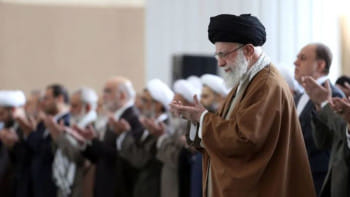BB introduces counter-trade to ease forex pressure

The Bangladesh Bank has unveiled the counter-trade policy, an arrangement that promotes direct exchanges of goods and services without cash, with a view to reducing pressure on dwindling foreign currency reserves.
In a notice yesterday, the central bank said exporters, importers and traders may voluntarily enter into counter-trade deals with counterparts abroad.
Counter-trade refers to the exchange of goods and services in whole or part, with other goods and services, rather than for hard currencies. Bartering is the oldest form of counter-trade arrangement and now there are several versions of counter-trade.
Counter-trade is a well-known method of international commerce in India and other countries.
The BB policy said that credits to Escrow accounts can be made out of import payments in approved foreign currencies received from importers through local banking channels supported by documentary evidence.
An escrow account is an account where funds are held in trust whilst two or more parties complete a transaction.
Similarly, the accounts can be debited for export payments supported by documentary evidence to exporters through local banking channels.
A senior official of the central bank explains that if an importer buys goods from a foreign company, a liability is created. The liability is settled when the importer exports products to the same firm.
These transactions will not involve any currency. However, the evaluation of the export-import goods and services will be conducted through currencies such as the US dollar. As a result, it will be added to the balance of payments.
The value of exported and imported goods will be identical.
The central bank has taken a series of initiatives in the recent months to lessen pressure on the foreign exchange market and yesterday's policy is part of them.
The country's gross reserves plummeted to $21.15 billion on March 6 from $40.7 billion in August 2021 because of higher outflows compared to inflows.
"When developing countries face problems in carrying out foreign transactions, they exchange their products or services," said Anis A Khan, a former chairman of the Association of Bankers, Bangladesh.
"The policy will help reduce pressure on the forex market."
Ahsan H Mansur, executive director of the Policy Research Institute of Bangladesh, says counter-trade will create an additional option for the business community to carry out two-way commerce.
In recent years, Sri Lanka and Pakistan turned to counter-trade after their forex reserves came under challenges.
In February this year, cash-strapped Sri Lanka said it had exported tea worth $20 million to Iran to partially repay its $251 million oil debts.
According to a report of Nikkei Asia in July last year, Pakistan authorised barter trade with Afghanistan, Iran, and Russia.
India carried out foreign trade with Malaysia and Iran under counter-trade agreements. There are also successful examples of the system in the Philippines, Indonesia, and China.
Counter-trade arrangements are not without complexities.
Sometimes, the value of products and services increases and timing also is an issue, said the managing director of a private commercial bank.
"Thus, it does not have a significant share in modern trade."

 For all latest news, follow The Daily Star's Google News channel.
For all latest news, follow The Daily Star's Google News channel. 









Comments